
Explore key updates in hemophilia management, focusing on patient support, bleeding management, and the pharmacist's vital role in treatment.

Explore key updates in hemophilia management, focusing on patient support, bleeding management, and the pharmacist's vital role in treatment.

Experts discuss practical strategies for early recognition and coordinated care of tardive dyskinesia to enhance patient outcomes and quality of life.
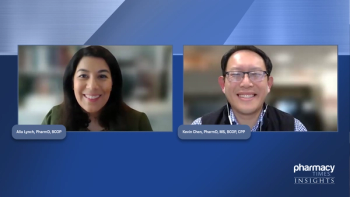
Navigating FDA-Approved EGFR-Targeted Therapies in NSCLC

In this segment, the experts turn their attention to metastatic HR+/HER2– breast cancer, examining the first results from the VIKTORIA-1 trial evaluating gedatolisib in combination with fulvestrant with or without palbociclib.

Prateek Bhatia discusses optimizing staffing and workflows in infusion centers to enhance patient care and reduce delays in treatment.
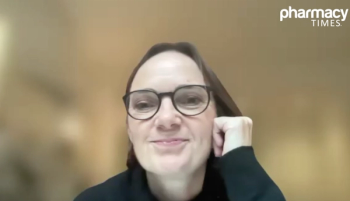

IV compounding robotics and next-generation dispensing technology enhance pharmacy workflows, boost staff engagement, and improve patient care outcomes.


Pharmacists explore new breast cancer therapies and management strategies, enhancing patient care and treatment outcomes at SABCS.

Heidi De Souza, MPH, reveals low RSV vaccine uptake among older adults, highlighting disparities and barriers that hinder access and awareness post-FDA approval.

Oncology pharmacists discuss myelofibrosis management, focusing on anemia, JAK inhibitors, and improving patient outcomes through tailored care.

Explore expert insights on managing myelofibrosis, focusing on anemia, JAK inhibitors, and enhancing patient care for better outcomes.

GLP-1 medications show promise in reducing chemotherapy side effects and improving heart health in breast cancer patients, warranting further research.

Clinicians learn to optimize type 2 diabetes treatment using automated insulin delivery data, enhancing patient safety and education for effective management.

Experts discuss innovations in medication-use processes at the ASHP Midyear Meeting, highlighting trends in acute and ambulatory care for pharmacy leaders.
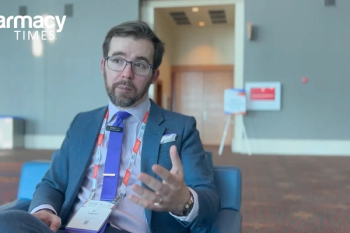
Patients learn the importance of understanding treatment-related skin issues, recognizing symptoms, and adopting gentle skincare practices for better management.


A pharmacist-led deep vein thrombosis (DVT) clinic revolutionizes outpatient care, reducing emergency visits and costs while enhancing medication adherence through collaborative practices.
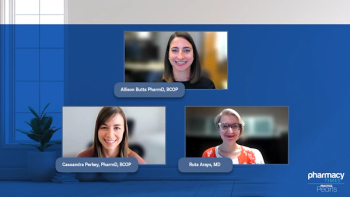
Because ASCENT-03 allowed crossover and more than half of patients received subsequent therapy, overall survival is unlikely to show a statistically significant difference, even if a clinical benefit exists.

The ASCENT-03 trial, presented at ESMO and published in NEJM, evaluated sacituzumab govitecan (SG) versus physician’s-choice chemotherapy—including paclitaxel, nab-paclitaxel, or gemcitabine/carboplatin—in patients with metastatic TNBC who were either PD-L1–negative or not candidates for immunotherapy.
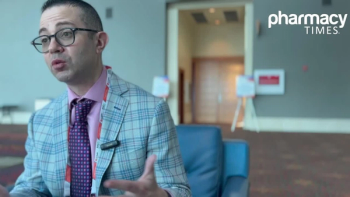
Explore the latest insights on breast cancer treatment, focusing on radiation, endocrine therapy, and the role of pharmacists in patient care.

Prateek Bhatia discusses optimizing infusion operations through technology, data analytics, and patient journey understanding at the ASHP Midyear Meeting.

In this segment, the experts dive into the monarchE subanalysis evaluating how Ki-67 levels before and after neoadjuvant chemotherapy inform prognosis and treatment planning for high-risk HR+, HER2– early breast cancer.

In this segment, the panel unpacks the 5-year results from the NATALEE trial, which evaluated ribociclib plus a nonsteroidal aromatase inhibitor in early HR+/HER2– breast cancer.
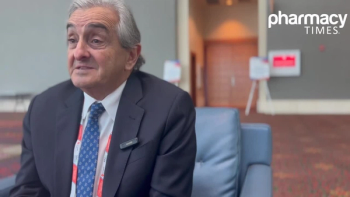
New findings at SABCS reveal MammaPrint's role in identifying early-stage breast cancer patients who benefit from anthracyclines, reducing unnecessary treatment.

SABCS showcases emerging trends in breast cancer treatment, emphasizing pharmacists' vital role in medication management and patient care strategies.
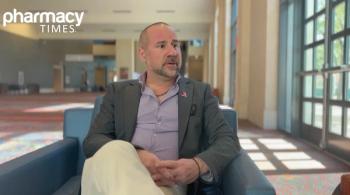
Explore innovative biomarkers to enhance immunotherapy for early-stage TNBC, aiming to improve patient outcomes and treatment precision.

As the new chair of the Advisory Committee on Immunization Practices (ACIP) signals interest in revisiting childhood and adolescent vaccine schedules, immunologist Morgan McSweeney, PhD, stresses that any changes must be anchored in decades of rigorous safety and efficacy data.

Explore the pleiotropic effects of GLP-1 agents in oncology care, highlighting their benefits and considerations for pharmacists and clinicians.

Explore the HER2CLIMB-05 study's findings on tucatinib's impact on breast cancer progression-free survival, enhancing treatment options for pharmacists.